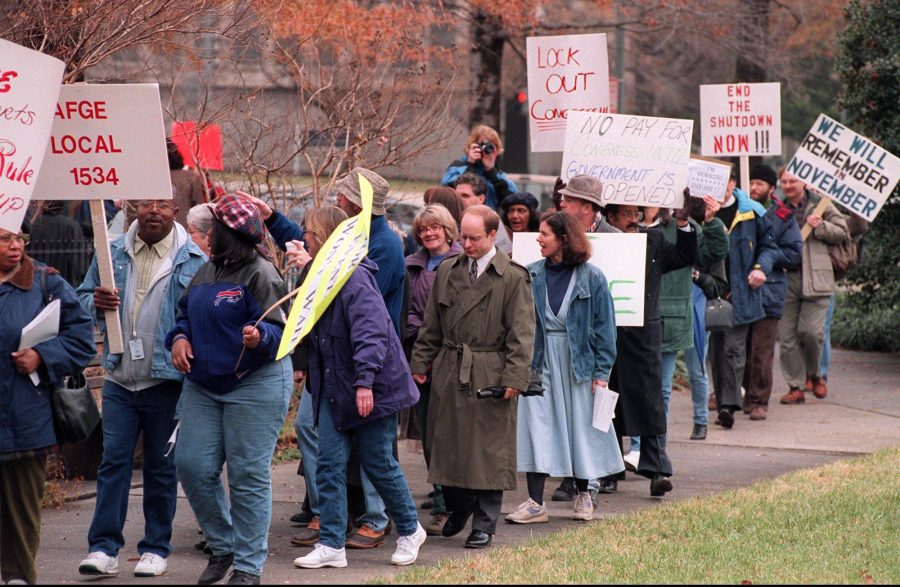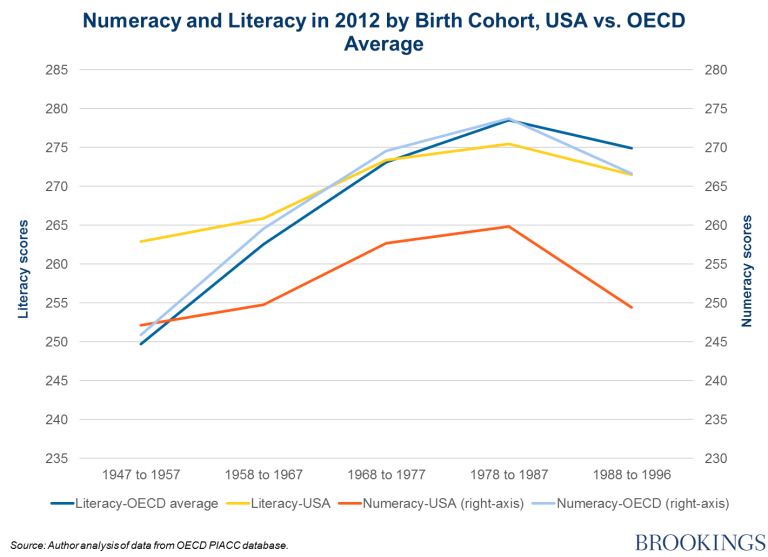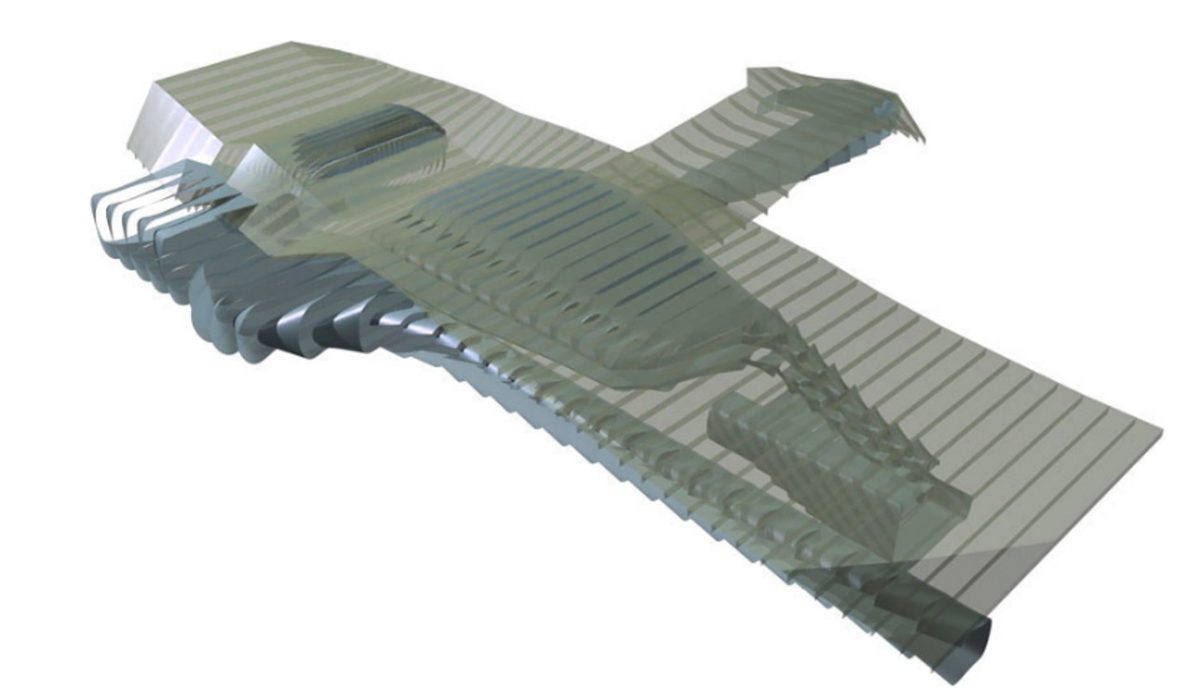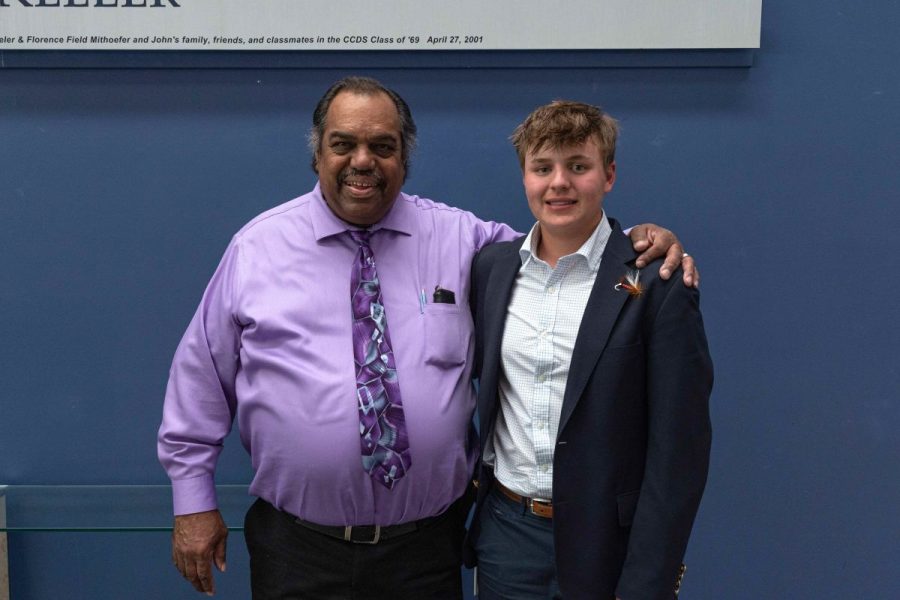By Mia Fatuzzo ’15, News Section Editor
On the morning of Tuesday, October 1st, the National Zoo’s Panda Cam went dark. Why? Because October 1st marked the first day of a government shutdown in which nonessential government workers were furloughed and numerous government services were halted. The Panda Cam, which had previously been streaming video of Mei Xiang’s latest cub, unfortunately fell soundly into the “nonessential” category.
In recent years, US politics have become increasingly divided and the task of passing a budget through Congress has become nearly impossible. (The U.S. last balanced its budget in 2001.) If Congress fails to pass an annual budget, a series of Appropriations bills must instead be passed as “stop gap” measures. An Appropriation bill, commonly termed a “Continuing Resolution” or CR for short, will only keep the government funded for a certain amount of time until another bill must be passed. The current CR, which, if you’re curious, set US government funding at $984 billion, expired at midnight on Monday, September 30th, with no new CR in place. The government, minus a current CR bill, was forced into a state of shutdown. Nonessential (about half) of government workers were furloughed, which means that they were put on temporary unpaid leave. Government services considered nonessential, such as the Panda Cam, were stopped.
However, there are two pressing concerns facing the United States government regarding the nation’s financial state, and unfortunately, an inability to pass a new CR is not the more serious of the two. Currently set at $16.699 trillion, the debt ceiling is the upper limit of money the United States government is allowed to borrow. It is estimated by the United States Treasury that the current Ceiling will be exhausted on October 17th. Breaching the it would ruin the credibility of the United States economy, and have major global ramifications.
Congress will, at the moment, neither vote to establish a new CR nor vote to raise the debt ceiling. Why? A small group of “Tea-Party” Republicans led by Texas Senator Ted Cruz are refusing to do so until they receive policy concessions from the Obama Administration regarding chiefly the Patient Protection and Affordable Care Act (PPACA). Signed into law by President Barack Obama on March 23, 2010, the legislation aims to increase the quality and affordability of health insurance, lower the uninsured rate, and reduce the costs of healthcare for individuals and the government. Many conservatives, as supporters of small over large government, oppose the Act on grounds that it could disrupt existing health plans or increase the deficit. Some politicians are also simply opposed to the idea of universal healthcare. However, the President doesn’t want to negotiate with the Republicans, and especially refuses to make any concessions regarding the PPACA.
The government shutdown has had, so far, a wide range of effects. While those uninvolved with the government and those involved “essentially” with the government have most likely noticed little change, those considered nonessential members of the government and those who rely on the government have certainly felt its effects. But just who and what are being affected? The government shutdown negatively affects the National Institute of Health, the Department of Housing and Urban Development, the Department of Homeland Security, the Justice Department, the National Parks Service, the Environmental Protection Agency, the Commodity Futures Trading Commissions, the Social Security Administration, the State Department, benefits and services for veterans, and the Women, Infants, and Children program supplied by the Department of Agriculture. To provide some examples, 94% of the EPA’s employees have been furloughed, including those responsible for the ongoing cleanup of over 500 toxic waste sites. Numerous NASA employees are furloughed, including David Lavery, who oversees the Mars rover mission. However, the gym for members of the House of Representatives, such as workout buff and marathon magician Representative Paul Ryan, remains open.
Few people are happy with the current state of the government. Democrats are quick to blame Republicans, and Republicans are quick to point out the President’s inflexible position. However, out of Republicans who despise the Affordable Care Act and desire to rein in government spending, many agree that their shutdown-initiating colleagues acted recklessly. John McCain, for example, described junior Senator Ted Cruz as a “wacko bird.” As Americans struggle, as the cost of the shutdown grows, and as the debt-ceiling looms closer, the enormity of the problems created highlights the trivialness of the initial issue. Republicans are faring wretchedly in public-opinion polls regarding the shutdown. It’s time to re-open the government. However, John Boehner, the Republican speaker of the House of Representatives, has declared he won’t pass a bill unless it has the majority support of the Republican Party. President Obama and the Democratic Party won’t accept any alterations to the PPACA. A compromise could be hard to come by.







